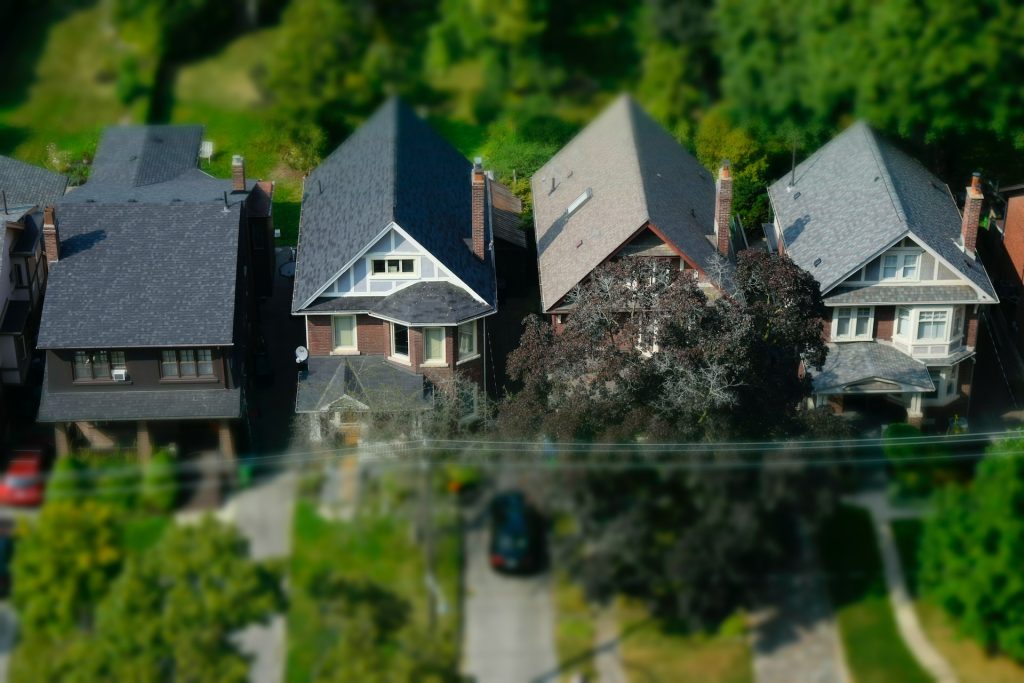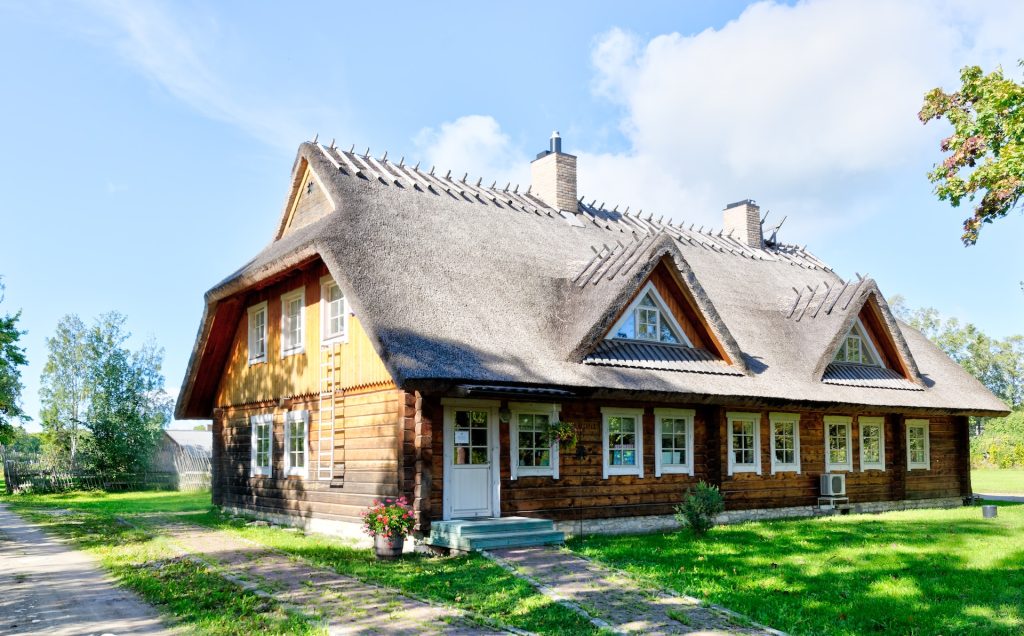Buying foreclosed properties can be a tempting choice for both homebuyers and investors. These homes, taken over by banks due to unpaid mortgages, are known for their lower prices. According to a 2021 report by ATTOM Data Solutions, foreclosed homes can be up to 40% cheaper than market value.
However, the process of buying these properties is not straightforward. It involves navigating through various legal and financial complexities that standard home buying doesn’t usually entail. Explore both the positive aspects and challenges of purchasing foreclosed homes, providing detailed insights to help potential buyers make informed decisions.
What are Foreclosed Properties?

Foreclosed properties are homes or buildings that have been taken over by a bank or a financial lender. This action occurs because the previous owner failed to make payments on their mortgage. When a homeowner defaults on their mortgage, the lender, in order to recover the unpaid loan amount, initiates a legal process known as foreclosure. This process culminates in the lender taking possession of the property.
What Causes to Forclosed Properties?

1. Missed Payments and Default
- The process begins when a homeowner fails to make their scheduled mortgage payments. This can be due to various reasons, such as financial hardship.
- Typically, after a few missed payments (often three to six months of non-payment), the mortgage lender considers the mortgage to be in default.
2. Notice of Default
- The lender issues a Notice of Default (NOD), which is a formal notification to the borrower that they are in default.
- This notice is often recorded with the county recorder’s office and marks the official beginning of the foreclosure process.
3. Pre-Foreclosure Period
- After the NOD, the borrower enters a pre-foreclosure period, which typically lasts from three to six months.
- During this period, the borrower can work out an arrangement with the lender (like a modified payment plan), pay the outstanding amount to become current, or sell the home in a short sale.
4. Notice of Trustee’s Sale
- If the default isn’t corrected, the lender then issues a Notice of Trustee’s Sale, setting a date for the home to be sold at a public auction.
- This notice is also recorded with the county, posted on the property, and published in local newspapers.
5. Auction (Trustee’s Sale)
- The property is auctioned to the highest bidder, who must usually pay in cash or cashier’s check.
- The winner of the auction becomes the new owner of the property.
- In many cases, if there are no bidders, the property reverts to the lender and becomes a Real Estate Owned (REO) property.
6. Post-Foreclosure
- If sold at auction, the previous owner must vacate the property, if they haven’t already.
- If the property becomes REO, the lender may sell it through a real estate agent or at a future auction.
7. Eviction
- If the previous owner still resides in the property, the new owner (either the auction winner or the lender in case of REO) can start eviction proceedings to remove them.
8. Redemption Period
- In some states, there is a redemption period even after the foreclosure sale, during which the original owner can reclaim the property by paying the full sale price plus certain additional costs.
Advantages of Buying Foreclosed Properties

1. Affordable Prices
Typically, these properties are priced below standard market rates, offering a unique opportunity for buyers to access homes at a lower cost. This price reduction is often due to the banks’ desire to quickly offload these properties and recover the outstanding loan amount. According to a report by ATTOM Data Solutions, foreclosed homes can be purchased for up to 40% less than their market value. This significant price difference makes foreclosures a viable option for a range of buyers, from first-time homeowners to savvy investors seeking to maximize their budgets.
2. Investment Potential
These properties often require refurbishment, which, when done effectively, can significantly increase their market value. The potential for profit in this sector is considerable. A study by the National Association of Realtors indicated that, on average, investors in foreclosure properties could expect a return on investment of around 30-40%, depending on the property’s location and the extent of renovations. This high return potential makes foreclosed homes an attractive option for real estate investors looking to expand their portfolios and capitalize on market opportunities.
3. Less Competition
Many potential buyers are deterred by the complexities and uncertainties surrounding foreclosures, such as potential legal issues, the condition of the property, and the intricacies of the bidding process at auctions. This reduced competition offers a strategic advantage for those willing to navigate these challenges. Industry insights suggest that homes in foreclosure attract fewer bids than regular listings, providing a more straightforward path for interested buyers to acquire properties. This aspect of foreclosures is especially beneficial in hot real estate markets, where traditional home buying can be highly competitive and often prohibitive for many buyers.
4. Equity Building
This is particularly true when a property is acquired below market value and subsequently improved through renovations. The improvements made to the property can significantly increase its value, often surpassing the total investment made in both the purchase and the renovation. For instance, a buyer might purchase a foreclosed home at a 30% discount, invest in upgrades, and see the property’s value increase to exceed the area’s average home price. This equity growth not only benefits homeowners looking to increase their net worth but also serves as a boon for investors who may later sell the property for a considerable profit.
5. Variety of Choices
Foreclosed properties offer a wide range of choices across various neighborhoods, catering to different preferences and needs. Unlike typical market listings, which might be concentrated in specific areas, foreclosures can be found in diverse locations, from suburban communities to urban centers. This variety allows potential buyers to explore homes in different settings and choose a property that aligns with their lifestyle or investment criteria. Whether looking for a rural retreat, a suburban dwelling, or an urban apartment, the foreclosure market often has a multitude of options available, offering something for every type of buyer.
6. Opportunity for Bargains
Foreclosed properties, particularly those sold at auctions, present buyers with the opportunity to secure homes at significantly lower prices than their actual market value. Auctions are a common method for selling foreclosed homes, and they often start at prices that are considerably below what the property would normally sell for. This pricing setup is primarily due to the lenders’ urgency to sell these properties quickly to recoup their losses. As a result, buyers attending these auctions have the chance to bid on and potentially win properties at bargain prices. For example, it’s not uncommon to see homes at auctions being sold for 20% to 50% less than their estimated market value, offering tremendous savings to the winning bidder.
7. Potential for Quick Sales
Banks and financial institutions that own foreclosed properties are typically motivated to sell them as quickly as possible. This urgency often results in these properties being listed at competitive prices, opening the door for good deals for potential buyers. The reason behind this motivation is straightforward: financial institutions are in the business of lending money, not managing real estate. Holding onto these properties incurs additional costs and liabilities. Therefore, they often price foreclosed homes to sell fast, which can be especially advantageous for buyers looking for lower-priced homes or investors seeking properties that can be quickly turned around for profit.
8. Market Appreciation
Investing in foreclosed properties can be particularly beneficial in terms of market appreciation, especially in recovering or growing real estate markets. While these properties might initially be purchased at a lower value, they often have the potential to appreciate significantly over time. This appreciation is amplified in areas where the real estate market is on an upward trajectory. For example, in a neighborhood undergoing revitalization or in a city experiencing economic growth, the value of a property bought during a downturn can rise considerably as the market recovers, yielding substantial returns on the initial investment.
9. Rental Income
After acquiring a foreclosed home, often at a lower price, and making necessary repairs or renovations, investors can rent out these properties to tenants. This strategy not only provides a regular income stream but also contributes to the property’s maintenance and mortgage payments, if applicable. In many cases, the rental income can exceed the property’s ongoing expenses, leading to a profitable rental business. Moreover, as the property market appreciates, the value of the rental property increases, thereby enhancing the overall investment portfolio of the owner.
10. Government Programs
Several government-sponsored programs are available to assist buyers interested in purchasing foreclosed properties. These programs, often designed to stabilize housing markets and communities, can provide financial aid, favorable mortgage terms, or grants for homebuyers. For instance, the U.S. Department of Housing and Urban Development (HUD) offers programs that allow buyers to purchase foreclosures with lower down payments or provide funds for renovations. Additionally, the HomePath Ready Buyer program by Fannie Mae offers assistance to first-time homebuyers in purchasing foreclosed properties. These initiatives make it easier for individuals to enter the housing market, especially those who might find traditional property purchases financially challenging.
11. First-Time Buyer Opportunities
Foreclosed properties often present a valuable opportunity for first-time homebuyers. Due to their lower price points, these homes are more accessible to individuals and families entering the housing market for the first time. This affordability can make the dream of homeownership a reality for those who might otherwise be priced out of the market. First-time buyers can leverage these lower prices to purchase larger homes or homes in more desirable areas than they would typically afford in the traditional market. This aspect of foreclosures opens up a broader range of possibilities for those starting their homeownership journey.
12. Neighborhood Revitalization
When these properties are restored and occupied, they help reduce blight and increase community stability. Renovating these homes can also lead to an increase in property values in the surrounding area, benefiting the entire neighborhood. Moreover, the process of revitalizing these properties often involves local contractors and businesses, further contributing to the local economy. This positive impact on communities is an often overlooked but vital aspect of purchasing and rehabilitating foreclosed properties.
13. Learning Experience
It offers an opportunity to gain hands-on knowledge about the real estate market, property renovation, and property management. Navigating the complexities of buying a foreclosure, understanding renovation needs, and managing a property post-purchase provide practical insights that can be beneficial for future real estate endeavors. This experience is particularly valuable for those considering a long-term investment in real estate, as it lays a solid foundation of knowledge and skills essential for success in the field.
Risks and Cons of Buying Foreclosed Properties

1. Legal and Financial Risks
It’s not uncommon for foreclosed properties to have issues like unresolved liens, disputes over property lines, or claims from previous owners, which can lead to legal complications for the new buyer. These title problems can be costly and time-consuming to resolve, potentially involving court proceedings. Additionally, buyers may face financial risks from unseen costs associated with clearing these legal hurdles. It’s crucial for buyers to conduct a thorough title search and possibly invest in title insurance to protect against these risks.
2. No Disclosures
This lack of disclosure means buyers are purchasing the property ‘as-is’ without any guarantees or information about potential issues like previous repairs, pest infestations, or foundational problems. This uncertainty requires buyers to be extra cautious, often necessitating comprehensive property inspections and additional research to uncover any hidden problems, which can add to the overall cost and effort needed before making a purchase decision.
3. Competition from Investors
Foreclosed properties are often targeted by experienced investors, which can create stiff competition for individual buyers. These investors usually have more resources, experience, and sometimes even insider knowledge, giving them an edge in acquiring these properties. They are often able to act quickly, make cash offers, and are familiar with the auction process, making it challenging for less experienced buyers to compete. This competitive environment can drive up prices at foreclosure auctions and make it difficult for first-time buyers or those looking for a primary residence to secure a deal on a foreclosed property.
4. Risk of Vandalism
Vacant properties, which many foreclosed homes often are, are at a higher risk of vandalism. These homes left unattended for extended periods, can become targets for theft, graffiti, or other forms of property damage. This risk is especially prevalent in less secure neighborhoods or in properties that have been vacant for a long time. The cost of repairing vandalism can add to the total investment required to refurbish the property, diminishing the potential profitability or affordability of the foreclosure. Buyers considering a foreclosed property should assess the security of the area and factor in the potential costs of safeguarding and repairing the property against such risks.
5. Sold As-Is
Foreclosed properties are typically sold ‘as-is,’ which means they come without any warranties or guarantees about their condition. This situation places the responsibility on the buyer to identify any issues with the property, which can range from minor cosmetic fixes to major structural repairs. The ‘as-is’ nature of these sales implies that buyers cannot negotiate repairs or price reductions based on property conditions discovered after the sale. This factor can lead to substantial additional investments for repairs and renovations, potentially negating the initial savings from the lower purchase price. Buyers interested in foreclosures need to be prepared for this reality and ideally have a contingency budget for unforeseen repair work.
6. Emotional Stress
Unlike conventional home buying, the process can be unpredictable, with the potential for bidding wars at auctions, delays in bank responses, or sudden changes in sale terms. For many buyers, especially those purchasing a home for personal use, this unpredictability can be emotionally taxing. The competitive nature of auctions, the possibility of losing out on a property after investing time and resources, and the risk of unforeseen legal complications can add to the stress. Prospective buyers should be mentally prepared for these challenges and consider if they are ready to navigate the potentially turbulent waters of foreclosure purchases.
7. Market Fluctuations
The value of a foreclosed property, like any real estate investment, is subject to market fluctuations. While there’s potential for appreciation, the market can also decline, affecting the property’s value negatively. Economic downturns, changes in neighborhood dynamics, or shifts in housing demand can all impact the value of a foreclosed property after purchase. For investors, this volatility can mean the difference between a profitable investment and a financial setback. Buyers looking to live in the property also face risks; a drop in market value can leave them with a home worth less than what they paid. It’s important for buyers to consider these market risks and their potential impact on the long-term value of a foreclosed property.
8. Property Condition
Many of these properties have been vacant for extended periods, leading to issues like mold, plumbing problems, or structural damage. Some foreclosed homes have also been subject to vandalism or stripping of valuable fixtures. These conditions require significant repairs and renovations, which can be costly and time-consuming. For buyers, especially those not experienced in home renovations, this can turn the initial bargain into a more expensive and challenging project than anticipated. It’s crucial for potential buyers to thoroughly inspect these properties and realistically assess the cost and effort needed for restoration.
9. Additional Costs
Hidden costs associated with foreclosed properties can catch buyers by surprise, impacting the overall affordability. These costs may include unpaid property taxes, liens placed on the property by creditors, or homeowner association (HOA) dues. In some cases, the property might also have legal issues that need resolution, adding to the expense. Such additional financial burdens can significantly increase the total investment required to secure and maintain the property. Prospective buyers should conduct a detailed background check and seek legal advice to uncover and understand any additional financial obligations that come with purchasing a foreclosed home.
10. Complex Purchasing Process
It can involve navigating through different stages, including dealing with banks or auction houses, understanding the legalities of a foreclosure sale, and sometimes competing with experienced investors at auctions. This complexity requires a level of expertise and patience that may be daunting for first-time buyers or those unfamiliar with the foreclosure market. Additionally, the timeline for purchasing a foreclosed property can be unpredictable, with potential delays in bank approvals or legal proceedings, making it a less suitable option for buyers with time constraints.
11. Cash Payment Requirements
This stipulation can be a significant barrier for average homebuyers who might rely on mortgages or loans to finance their purchases. The requirement for a large upfront cash payment limits the pool of potential buyers to those who have immediate access to substantial funds. This cash-only aspect makes it challenging for individuals who might see a foreclosed property as an affordable entry into homeownership but lack the liquidity to compete in the auction process. Buyers interested in foreclosed properties need to be financially prepared for this unique demand.
Conclusion
Purchasing a foreclosed property can offer significant opportunities but also come with distinct challenges. Potential buyers should approach such investments with diligence, understanding both the financial and legal implications. Conducting thorough research, seeking professional advice, and carefully considering the renovation costs and market conditions are key to making a successful foray into the world of foreclosed real estate.

